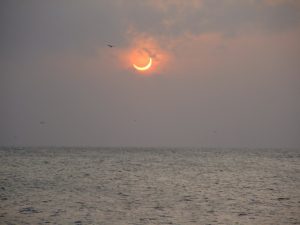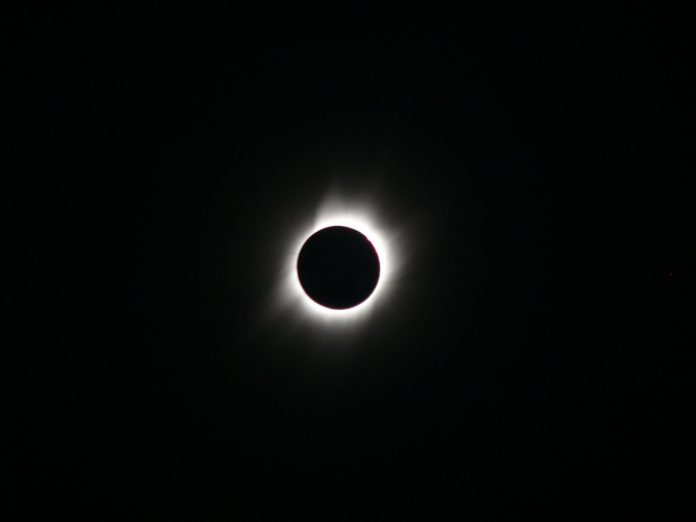Saros Cycle is a period of time that a nearly identical eclipse happens every 18 years, 11 days, and 8 hours. It’s a period of 223 synodic months and was first discovered by astronomers back in B.C. The eclipse that we will all be witnessing August 21st will be one of the Saros 145 series.
Total eclipses do occur about every 18 months but this particular eclipse wont for another 18 years but that doesn’t mean that we will see it here in the U.S. The last one that was viewable in the U.S. was 38 years ago and only viewable in five northwestern states. This one can be viewed in most continental states but only some along the path of totality will see a total eclipse. People outside that path will only see a partial eclipse.
 So what exactly is a total solar eclipse? Without getting to technical it’s basically when the moon moves in front of the sun perfectly blocking out its rays to Earth. I know that seems pretty simple and really it is but there is a lot of science behind it. (You’ll have to find someone else’s article about the science part of it) If the moon is too far away then you will see an annular solar eclipse and it will appear to be a ring in the sky and what most of the U.S. will see is a partial where only part of the sun will be blocked.
So what exactly is a total solar eclipse? Without getting to technical it’s basically when the moon moves in front of the sun perfectly blocking out its rays to Earth. I know that seems pretty simple and really it is but there is a lot of science behind it. (You’ll have to find someone else’s article about the science part of it) If the moon is too far away then you will see an annular solar eclipse and it will appear to be a ring in the sky and what most of the U.S. will see is a partial where only part of the sun will be blocked.
Regardless where you are while looking at the eclipse you will want to experience it but you will want to take precautions. Although, looking at the sun is unsafe you can still view it momentarily while it is completely blocked by the moon or by using a solar filter such as special eclipse glasses or hand held solar viewers. Whatever your choice may be it will definitely be worth it.
Here is some interesting information about total eclipses.
Most ancient civilizations thought an eclipse meant something bad such as the end of the world or their God disciplining them for some wrong doing. As an example, the Vikings thought a wolf swallowed the sun god Sol therefore they made as much noise as possible to try and scare it away.
There have been positive outcomes from eclipses. For example, Herodotus, a Greek historian, wrote that a battle between the Medes and Lydians in Anatolia was called to a truce during an eclipse. This occurred in 585 B.C. and was most likely out of fear that their God did not approve of what was going on. Unfortunately, we now know that eclipses are not God sending us that message, however, some believe that eclipses are still a message from God to the entire world.
Amber L. Sioux Falls student writer

















